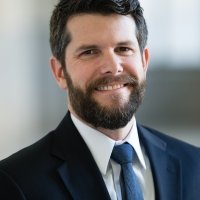For deeper analysis and background on the July 1 elections in Mexico, we have collected selection of insights from Mexico Institute staff and colleagues on the PRI's rise to power, the prospects for security, economic, and energy policy, the impact on U.S.-Mexico relations and the future of Mexican democracy. This list will be continually updated on the Mexico Institute homepage as more articles are released. We hope you find this collection useful. Please visit The Mexico Institute Election’s Guide and The Mexico Portal for additional coverage.
Why the PRI returned to power after 12 years and the electoral results:
Associate Director Eric Olson suggests in an interview with The Texas Tribune that the question on most people’s minds was whether a victory by the PRI’s Enrique Peña Nieto could overcome his party’s tainted legacy and “usher in a new era with a reformed PRI capable of tackling the issues of corruption and inefficient government, security and violence, and economic under-performance that have vexed other parties as well.” He also addressed the lack of excitement surrounding this election, telling NPR that even the devastating drug war of the last six years wasn’t number one on the mind of voters, though highlighting in The Huffington Post the surge in interest with the #YoSoy132 student movement.
Director Andrew Selee argues that many Mexicans believed the PRI to be capable of delivering results: “they want to bring them back because they think they might be able to do something about the violence in the country and they might be able to do something to make the economy more dynamic,” he told NBC Latino.
He also explained to The Washington Times the two reasons why the PRD’s presidential candidate, Andrés Manuel López Obrador, was unlikely to repeat the call for the massive protests of 2006: “One is that the electoral institute overseeing the voting is more credible this time around. The other is that if he loses, many people on the left will see him as the past and not the future of their movement.” Selee also talked to The New York Times about Peña Nieto’s efforts to bring together the younger and older generations within the PRI.
Senior Advisor Duncan Wood tells The Washington Post that "Calderon's problem is that in the last 12 years, Mexico has changed, it has made progress, but it has not been enough progress. The change is not profound. The life of the average Mexican is not sufficiently better." He also writes in a special to BBC News that the campaigns themselves failed to alter the electoral landscape.
Board member Carlos Heredia highlights the PRI’s perceived ability to deal with organized crime and the problems that perception brings in an interview with The Washington Post.
Also in The Washington Post, board member Lorenzo Meyer suggests the PAN’s loss is due in part to some “unremarkable” advisors to President Calderón.
On the future of security policy:
Director Andrew Selee stresses in an interview with The Dallas Morning News (subscription required) that the incoming government “may do things that will be more along the lines of changing the nuances [of security policy] than changing the overall strategy. There might be some tweaking of the strategy here or there, more for cosmetic reasons, but I see no major abrupt changes in strategy. My guess is that security is so important to both countries that neither government will do anything that would jeopardize that.” In The Houston Chronicle, he adds that:“There have been suspicions that the PRI would renew its old ways in dealing with drug traffickers and jettison the growing security cooperation relationship with the United States. This seems unlikely to happen, and the new government will almost certainly want to deepen cooperation against drug traffickers. That in turn will deepen reliance on the United States.”
In CBS News, Selee says a key question is how the PRI will handle local-level corruption. In The Houston Chronicle, he argues that voters have already punished the party in this election for some of this alleged corruption in “three states where citizens suspect their local authorities of complicity or, in some cases, grave omissions with managing the rise of the Zetas.”
The Houston Chronicle also cites a report by Associate Director Eric Olson that the incoming Mexican government “could target the most violent trafficking groups. By targeting groups like Los Zetas that have expanded their criminal activities into kidnapping and extortion, the government could punish these groups in the hopes that cartels in Mexico would compete to be perceived as the least violent and thereby avoid federal attack.”
Olson tells The Christian Science Monitor that Mexico will need to put more resources in the judicial system as well: “As long as prosecutions are ineffective, slow, and corrupt, it affects so many areas of life in Mexico.”
Board member Diana Negroponte suggests in The Telegraph that a pact with organized crime is impossible, even if certain groups favored one:
“Many people are going to vote for [Mr Peña Nieto’s Institutional Revolutionary Party] because they remember fondly the stable days when governments worked quietly with the cartels and made side deals. But who do you make a deal with now? The lieutenants are more fragmented and harder to negotiate with.”
Board Member Roderic Camp talks with The Houston Chronicle about the lesson of the incorrect arrest claim of the a drug cartel leader’s son: the paper writes that “unfortunately, the Mexican Marines have fallen into the same trap as the Mexican attorney general’s office, failing to positively identify a suspect before parading him before the cameras. Hopefully, they will institute proper vetting mechanisms and take their time announcing arrests in the future.”
On potential economic developments:
Senior Associate Duncan Wood weighs in on NPR’s Marketplace on the challenges of improving competitiveness and the healthy amount of government involvement, and writes in an op-ed with Jeremy Martin that energy and economic reform will be the crucial challenges for the next administration. Wood told The Houston Chronicle that while there was hope for energy reform, the lack of an absolute majority in Congress for the PRI, he explained to Bloomberg and The Houston Chronicle, complicates the process and will demand skillful negotiations. Wood argues in Reforma (subscription required) that the key moment for this reform will be during the transition period.
Program Associate Christopher Wilson also spoke with Reforma and stressed that a key focus in the first 100 days of the next administration will be to address competitiveness.
The Washington Post cites a report by board members Luis de la Calle and Luis Rubio that argues that “expectations for modernization, transparency and stability will be frustrated if the next president cannot reform Mexico’s deep-rooted oligopolic economic structure and break the gridlock that has stymied reform in such areas as labor, taxes and energy.”
On the impact on U.S.-Mexico relations:
Director Andrew Selee writes in a special to CNN that:
“The United States has a substantial interest in seeing Mexico's democracy flourish, its security situation improve and its economy grow. […] Deepening our partnership with Mexico is key to the future of U.S. security and prosperity. There will be legitimate doubts about the new government in Mexico, but there will be even more pressing reasons to move forward in strengthening the relationship with our neighbor next door.”
Selee also notes, in an interview with CNN, that "the U.S.-Mexico relationship has now matured to a point where changes in party and personality matter less than they used to. This is a country that matters enormously for the U.S., and for the first time, perhaps, what happens in the elections won't change [that relationship] much."
Board member Jeffrey Davidow writes in a special to The San Diego Union Tribune that:
“Mexico has changed in recent years, particularly since the advent of a competitive democracy marked by Fox’s election. But as yet, the fruits of those changes have been insufficient. The United States prospers when Mexico advances. A wealthier, more efficient Mexico with a more competent government is very much in our own interests.”
Board member Javier Treviño tells The Dallas Morning News that “we need to return some kind of framework to better manage the relationship and improve channels of communication. Peña Nieto doesn’t want to close the door, but he does want to better manage the opening and closing of that door.”
Board member James Taylor emphasizes in The Austin-American Statesman the need for "Mexico's government, businesses and civil society organizations need to join together to tell the also real story of improbable success in the face of security challenges and rising economic prosperity despite tough times.”
On the future of Mexican democracy:
Program Associate Christopher Wilson tells Al-Jazeera that Mexico has changed dramatically as a society, and so the PRI, whether dominated by the younger generation or older operatives, will face a different country than prior to 2000 and be unable to return to the old-style. That said, he tells France 24 that Peña Nieto’s cabinet appointments will suggest “which PRI shows up to govern.”
Director Andrew Selee concurs on the changed society, adding to CNN that:
“What's changed on the national stage is that Mexican citizens have different expectations for their federal government that are going to force the PRI to govern in a different way than it did 20 years ago. Then, the PRI was really a party that included all of Mexico, that had a broad patronage network and tolerated little dissent outside of the party. And the PRI today is going to have to deal with opposition parties that have tasted power, an active citizenry that expects to be involved in major policies decisions and a very vigilant press that will report on everything that happens."
Board Member Enrique Krauze agrees in an op-ed for The Washington Post, arguing that while the PRI may not have become a “modern party:”
“The president now exercises only his prescribed constitutional powers. We have a multi-party congress and an independent Supreme Court. A transparency law has reduced free-wheeling corruption at the federal level. There is absolute freedom of expression. The government no longer organizes and controls elections; they are regulated by a federal institute of citizens. The Bank of Mexico is autonomous. In short, a return to the days of the ‘perfect dictatorship’ is impossible.”
Associate Director Eric Olson tells The Daily Beast that the challenge for Peña Nieto “will [be] to show that the PRI he will lead will be democratic and honest, [since] there are a lot of doubts about that."
Board member Luis Rubio writes in Nexos that the PRI will also need to demonstrate that it can govern with quality and not only with execution.
Board member Rossana Fuentes-Berain says that “democracy is a contact sport” and that voters should both demand accountability and play by democratic rules after the election, in a special on Televisa’s “Noticiero con Joaquin López-Doriega.”
Board member Rafael Fernández de Castro suggests to The Dallas Morning News that “the next six years will be fundamental for Mexicans not to give up, not to lose hope or their will, because the last 12 years have been about experimenting, and the experiment hasn't gone as planned."
Board member Sergio Aguayo argues for a degree of skepticism about electoral process and ways to improve it.











